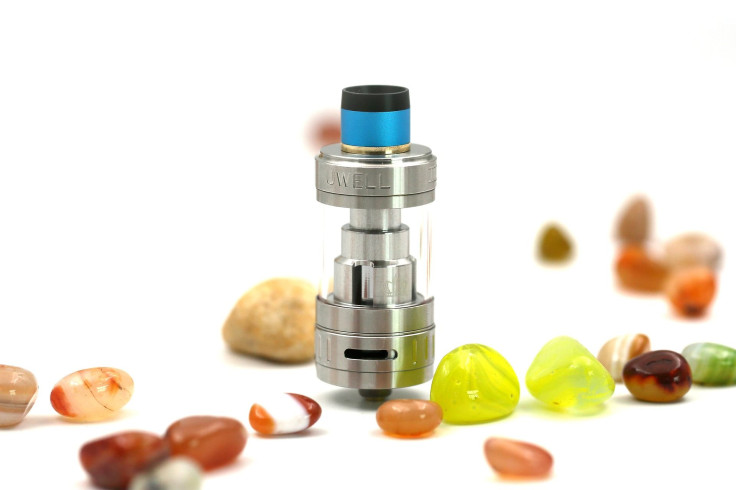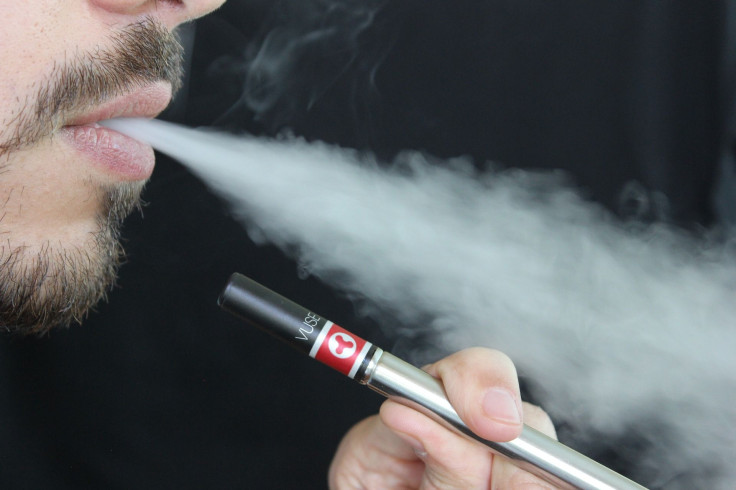Oregon attempts to squash teen e-liquid usage with regulations

"Everybody knows the best cannabis comes from Oregon," said American actor Jim Belushi to a local network last month as he promoted his own growth operation, Belushi's Farm. The problem is that given new regulations, it's about to get harder for Oregonians to identify their marijuana.
As reported by Vaping360, Sept 1 saw Oregon introduce a new, and strict regulation for packaging e-liquid from any state in which recreational marijuana is permitted. The law states that certain images and words may no longer appear on the packaging because they make the product appealing to minors. The list of terms and images may be updated by state regulators with no warning and fines may reach as much as US$1.05 million (AU$1.46 million) per retailer, which is enough to bankrupt many stores. As a result, most e-liquid products will be illegal to sell in Oregon.
Images of cartoons, celebrities and soda may not appear on labels, nor may words like "tart,” "sweet," "candy" or "cool." Each bottle containing any of the aforementioned items will count as a separate violation. First-time violators will be dealt with a warning letter, but each violation that follows will grow in terms of penalty. A second violation within 24 months will be US$500 (AU$694) per contraband item, a third violation within 24 months will be US$800 (AU$1,100) per contraband item, and so on. The law will be enforced by random inspections conducted by state officials.
Companies answering to the call
As companies scramble to adhere to Oregon’s new regulations, businesses like White Label Liquid Inc. (TCMKTS:WLAB) may find themselves with a whole new host of clientele. Apart from packaging, White Label can provide brands with the right tools and marketing know-how to properly run and retail a possible cannabis product and overall business.
This is because WLAB is an ISO-certified company and is more than capable of offering strategic business solutions to businesses who wish to get into the e-liquid or CBD business. The group is capable of manufacturing products, taking in charge of logistics and offering market expertise to provide cutting-edge solutions for those looking into producing its own CBD and e-liquid brand.
White Label Liquid can do this, thanks to its state-of-the-art facilities, wherein the company provides businesses with everything they need to launch, run and grow a successful enterprise in the growing CBD and e-liquid industries.
If that’s not enough, the company has an impressive two-week turnaround time. Thanks to White Label’s developers and engineers who are experts in developing a diverse lineup of products, all they really need is two weeks to come up with a customised flavour, sophisticated labels and even packaging. This publicly traded company is driven when it comes to providing customers with best-in-class white labelling.
White Label also provides personalised flavours, labels, or products given just two weeks’ notice. White Label also has over 400 flavours that can yield upwards of 50,000 combinations.
However, as Vape360 also reported, the FDA may also be going after flavoured e-liquids as well.

Under the direction of FDA commissioner Scott Gottlieb, the FDA went as far as recommending that JUUL Labs and four tobacco companies put thought into pulling all flavoured goods. The companies were given 60 days to provide plans for how they would curtail usage of their products by youths. The move was just one out of over 1,300 warning letters and monetary penalties put out by the FDA.
For Gottlieb, the use of vaporisers by teens is an "epidemic." As he said in an FDA press release , "E-cigs have become an almost ubiquitous ‒ and dangerous ‒ trend among teens. The disturbing and accelerating trajectory of use we’re seeing in youth, and the resulting path to addiction, must end. The FDA won’t tolerate a whole generation of young people becoming addicted to nicotine as a tradeoff for enabling adults to have unfettered access to these same products.”
In this way, as reported by the New York Times, the FDA has been an outlier during the tenure of US President Donald Trump, whose administration has otherwise turned a blind eye toward science-based issues like climate change and has pushed against rather than for deregulation. Notably, the agency has revealed aspirations to lower the nicotine content of cigarettes to non-addictive levels. Unfortunately, by attempting to curb usage of nicotine, marijuana users and distributors end up taking the hit.
As it stands, the combination of Oregon’s strict regulations and Gottlieb’s vision may be placing an undue burden on shopkeepers. Mark Pettinger, public affairs specialist for recreational marijuana at the Oregon Liquor Control Commission in Salem, explained the rules governing the in-store experience to the Herald and News . Products remain behind glass cases under constant surveillance by security cameras. Goods are sold directly by the clerk to the shopper, which means no one is actually able to physically select the product they wish to purchase (although items may be examined in hand).
Additionally, Gottlieb’s reasoning, aside from compromising adult access to e-liquids, takes an approach to vaping that’s comparable to abstinence-only sex education, a policy that has been shown by the National Institute for Health to be a failure. Instead, the NIH suggests comprehensive sex education, a comparable version of which may also be offered in regard to tobacco and marijuana products as a means of facilitating informed and safe usage by teens.
A robust education about marijuana would reveal that it’s a non-addictive alternative to pain medication. Furthermore, as detailed by Salon, marijuana is far safer than alcohol, although the social stigma around alcohol is far less severe. Marijuana has never caused a fatal overdose, the costs of healthcare related to alcohol-related illnesses far outweigh the costs of marijuana-related illnesses, and marijuana is not as addictive as alcohol.
Until the stigma around marijuana and the benefits thereof are widely known, shopkeepers, responsible users, and those who live with chronic pain will suffer as the government continues its abstinence-only approach. Determined users, however, will always prevail.
IBT Australia does not endorse any product or practice mentioned above. The article is based on press releases sent for consideration.





















